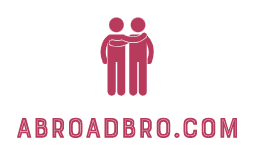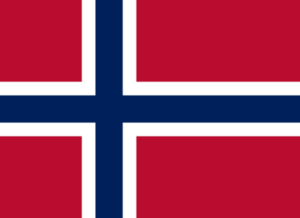AbroadBro Score: 8/10
The Good: Norway is known for its high standard of living, stunning natural beauty, and world-renowned education system. The country also has a strong economy and a low unemployment rate, making it an attractive destination for international students. Additionally, Norway is considered one of the most socially progressive countries in the world, with a strong emphasis on equality and sustainability.
The Bad: One of the main downsides of studying in Norway for international students is the high cost of living. Norway is considered one of the most expensive countries in the world, and students will likely need to budget for housing, food, and other expenses. Additionally, the weather in Norway can be quite harsh, particularly in the winter months.
The Ugly: Very, very cold. Extremely hard Language to master. Incredibly expensive.
Education Quality: Norway’s education system is highly respected and offers a wide range of programs at both the undergraduate and graduate levels. The universities are well-equipped with modern facilities and offer high-quality education.
Tuition Fees: Tuition fees for international students are relatively high in Norway, and students will need to budget accordingly. However, many universities offer scholarships and other financial assistance to help offset the cost of tuition.
Educational Reputation: Norway has a strong reputation for education, particularly in fields such as engineering, medicine, and the natural sciences. The country’s universities are well-respected and offer a wide range of programs at both the undergraduate and graduate level.
Student Visa Regime: The student visa regime in Norway is relatively straightforward, with clear guidelines and requirements. International students will need to provide proof of enrolment, financial support, and health insurance, among other documents.
Student Visa Extension: International students in Norway can apply to extend their student visas if they need more time to complete their studies. However, the process can be time-consuming and requires a significant amount of documentation.
Student Immigration at the Airport: The immigration process at the airport in Norway is generally smooth and efficient, with clear guidelines and requirements. However, international students should be prepared to provide all necessary documents and information, including proof of enrolment, financial support, and health insurance.
Attitude Towards Students: The attitude towards international students in Norway is generally positive, and students are well-integrated into the local community. The country’s universities and colleges are open to students from all backgrounds and cultures, and there are many opportunities for students to get involved in campus life.
Post-study Job Opportunities: After completing their studies, international students in Norway are eligible to apply for work permits and stay in the country for up to six months to look for work. However, the competition for jobs can be fierce, particularly in certain industries.
Post-Study Citizenship for International Students: International students are not eligible for citizenship by virtue of their study in Norway, but they may apply for citizenship after meeting the criteria of having lived in the country for a certain number of years.
Income/Expensive Ratio: The cost of living in Norway is high, and the income-to-expense ratio is not very favorable for international students. Basic necessities such as food, housing, and transportation can be quite expensive, and students will need to budget accordingly.
Job Market: The job market in Norway is generally stable, with low unemployment rates. However, competition for jobs can be fierce, particularly in certain industries. International students will likely have to take on part-time or casual work to supplement their income.
Minimum Wages and average salary: The minimum wage in Norway is currently around $22 per hour, and the average salary is around $62,000 per year. These figures can vary depending on the industry and location.
Local Language Difficulty: Norway’s official language is Norwegian, which can be difficult for international students to learn as it is not widely spoken outside of the country. However, many Norwegians speak English fluently, making communication relatively easy for English-speaking students. Additionally, many universities in Norway offer language classes to help international students improve their Norwegian language skills.
English Language Adaptation: Norway is a country where English is widely spoken and understood. Most Norwegians learn English in school and many use it as their second language. This will make it easy for international students to adapt in Norway.
Racism: Norway is generally considered a welcoming and inclusive country, and racism is not a major issue. However, as with any country, there may be isolated incidents of racism. International students should be aware of this possibility and report any incidents of racism they experience to the appropriate authorities.
Natives Profile: Norway is known for its natural beauty and is a country where people enjoy outdoor activities such as hiking, skiing, and fishing. Norwegians are also known for their punctuality and respect for personal space. They are friendly, welcoming, and polite.
Culture: Norway’s culture is heavily influenced by its Viking history and its natural environment. Norwegians value a strong sense of community, and their culture is centered around family, friends, and tradition. The country is also known for its love of the arts and music, and there are many museums, galleries, and concert venues for students to explore.
Food: Norwegian cuisine is heavily influenced by the country’s natural resources, particularly fish and seafood. Traditional dishes include salmon, cod, and herring. However, international students will also find a wide variety of international cuisines available in Norway.
Weather: Norway’s weather can be challenging for international students as it can be quite cold and dark during the winter months. However, the country is known for its spectacular natural beauty and offers many outdoor activities year-round.
Housing: Housing options for international students in Norway vary depending on the location and institution. Some universities offer on-campus housing, while others may require students to find their own housing. Prices can be high, but there are also options for more affordable housing.
Health/Medical: Norway has a well-developed and efficient healthcare system, and international students are generally able to access it. However, students may need to pay a small fee for some services. It is important for international students to have health insurance and to familiarize themselves with the healthcare system before arriving in Norway.
Public Transportation: Norway has an extensive and efficient public transportation system, including buses, trains, and ferries. It can be a convenient and affordable way for international students to get around the country.
Police: Norway is considered a safe country, and the police are generally friendly and approachable. International students should familiarize themselves with the emergency number (112) and know how to contact the police in case of an emergency

